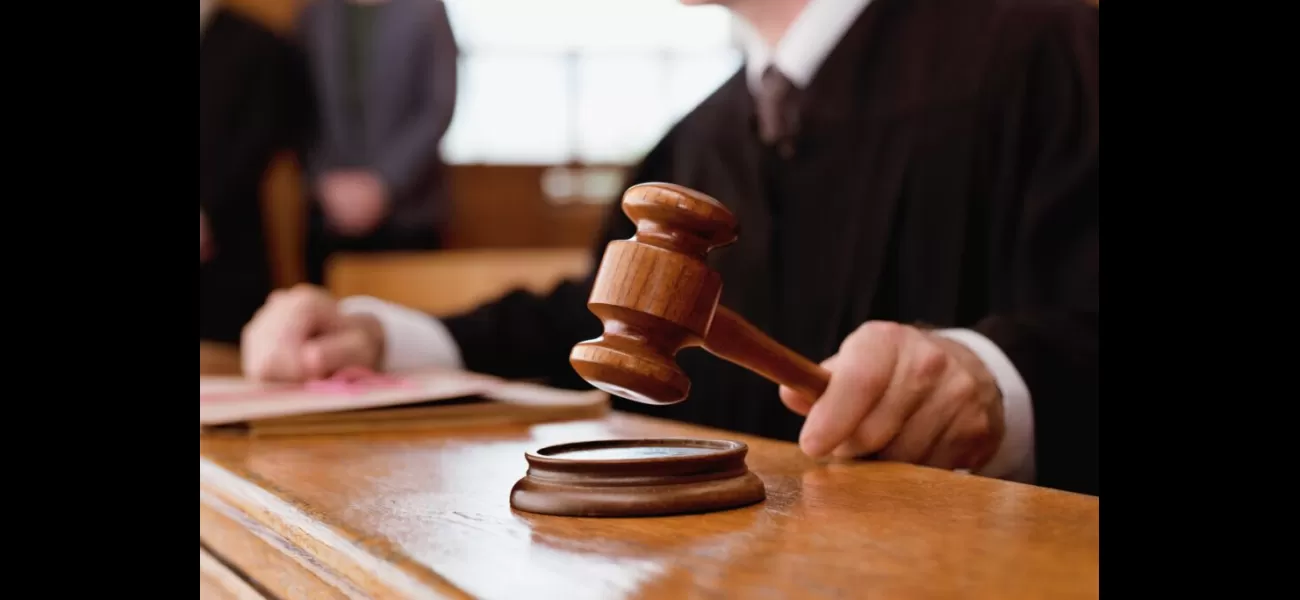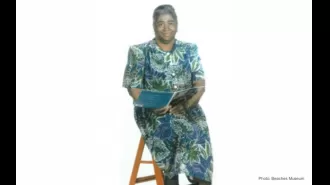Judge orders new trial for Terry Pitchford, ruling Mississippi court erred.
Black jurors excluded at 4x rate of white jurors in Evans' trials, analysis found.
December 20th 2023.

U.S. District Judge Michael P. Mills issued a ruling on December 12th, ordering a retrial for Terry Pitchford on capital murder charges. This was due to the fact that the judge at the initial trial did not give Pitchford's lawyer a chance to establish that the dismissal of Black jurors was discriminatory. Mills based his decision in part on the trial history of former District Attorney Doug Evans, who has a history of discrimination against Black jurors. Mills also mandated that the retrial must be completed within the next six months, or Pitchford will be released.
Pitchford is currently incarcerated at the Parchman Mississippi State Penitentiary, and is on death row for the 2004 murder of Ruben Britt, a Mississippi store owner. Pitchford and a friend, Eric Bullins, had gone to Britt's store outside Grenada to rob it. Bullins is suspected of shooting the store owner three times, which resulted in a mortal wound. Pitchford maintains that he never shot in the direction of Britt, instead shooting at the floor. Police later discovered Britt's gun at the residence of the then 18-year-old Pitchford, leading to his confession that he had attempted to rob the store.
Mills ruled that the jury selection in Pitchford's 2006 trial was fundamentally flawed because Pitchford's attorney was not allowed to challenge the state's dismissal of Black prospective jurors. To do this, a lawyer must be able to raise points that show a jury pool was affected by discriminatory strikes. The original jury selection had 61 white citizens and 35 Black citizens, which was whittled down to 36 white and five Black jurors, due in part to the objection of many Black jurors to Pitchford receiving the death penalty. State prosecutors then dismissed four additional Black jurors, leaving an almost all-white jury.
Mills noted that it is legal to strike Black jurors for reasons that do not have to do with race, and that the prosecutors did explain their reasons for excusing them at the trial. However, Mills reasoned that the defense was not given adequate time to contest the jury selections. He wrote in his ruling, "This court cannot ignore the notion that Pitchford was seemingly given no chance to rebut the state's explanations and prove purposeful discrimination."
Mills was further influenced by another case involving Evans, the United States Supreme Court's review of the case of Curtis Flowers, tried by Evans six times over the shooting deaths of four people. The Supreme Court ruled that Evans had denied Black jurors the opportunity to sit on the final jury, and overturned Flowers' death penalty conviction. Conservative Supreme Court Justice Brett Kavanaugh described Evans' efforts as a "relentless, determined effort to rid the jury of Black individuals".
The American Media Project covered the Flowers trial and discussed Evans' history of creating all-white or nearly all-white juries in his trials. In their analysis of Evans' 225 trials, they discovered that Black jurors were excluded at a rate of four times that of white jurors. Though they could not say with certainty that the outcomes were solely race-based, as they would need to interview the prosecutors in all those cases, they noted that even though Black jurors' odds were six times worse than that of white jurors, they could not say with complete certainty that the outcomes were solely race-based.
Mills said that although the Flowers case on its own did not prove anything, the history of Evans should have been taken into context when considering Pitchford's appeal. He stated, "The court merely believes that it should have been included in a 'totality of the circumstances' analysis of the issue."
Pitchford is currently incarcerated at the Parchman Mississippi State Penitentiary, and is on death row for the 2004 murder of Ruben Britt, a Mississippi store owner. Pitchford and a friend, Eric Bullins, had gone to Britt's store outside Grenada to rob it. Bullins is suspected of shooting the store owner three times, which resulted in a mortal wound. Pitchford maintains that he never shot in the direction of Britt, instead shooting at the floor. Police later discovered Britt's gun at the residence of the then 18-year-old Pitchford, leading to his confession that he had attempted to rob the store.
Mills ruled that the jury selection in Pitchford's 2006 trial was fundamentally flawed because Pitchford's attorney was not allowed to challenge the state's dismissal of Black prospective jurors. To do this, a lawyer must be able to raise points that show a jury pool was affected by discriminatory strikes. The original jury selection had 61 white citizens and 35 Black citizens, which was whittled down to 36 white and five Black jurors, due in part to the objection of many Black jurors to Pitchford receiving the death penalty. State prosecutors then dismissed four additional Black jurors, leaving an almost all-white jury.
Mills noted that it is legal to strike Black jurors for reasons that do not have to do with race, and that the prosecutors did explain their reasons for excusing them at the trial. However, Mills reasoned that the defense was not given adequate time to contest the jury selections. He wrote in his ruling, "This court cannot ignore the notion that Pitchford was seemingly given no chance to rebut the state's explanations and prove purposeful discrimination."
Mills was further influenced by another case involving Evans, the United States Supreme Court's review of the case of Curtis Flowers, tried by Evans six times over the shooting deaths of four people. The Supreme Court ruled that Evans had denied Black jurors the opportunity to sit on the final jury, and overturned Flowers' death penalty conviction. Conservative Supreme Court Justice Brett Kavanaugh described Evans' efforts as a "relentless, determined effort to rid the jury of Black individuals".
The American Media Project covered the Flowers trial and discussed Evans' history of creating all-white or nearly all-white juries in his trials. In their analysis of Evans' 225 trials, they discovered that Black jurors were excluded at a rate of four times that of white jurors. Though they could not say with certainty that the outcomes were solely race-based, as they would need to interview the prosecutors in all those cases, they noted that even though Black jurors' odds were six times worse than that of white jurors, they could not say with complete certainty that the outcomes were solely race-based.
Mills said that although the Flowers case on its own did not prove anything, the history of Evans should have been taken into context when considering Pitchford's appeal. He stated, "The court merely believes that it should have been included in a 'totality of the circumstances' analysis of the issue."
[This article has been trending online recently and has been generated with AI. Your feed is customized.]
[Generative AI is experimental.]
0
0
Submit Comment





